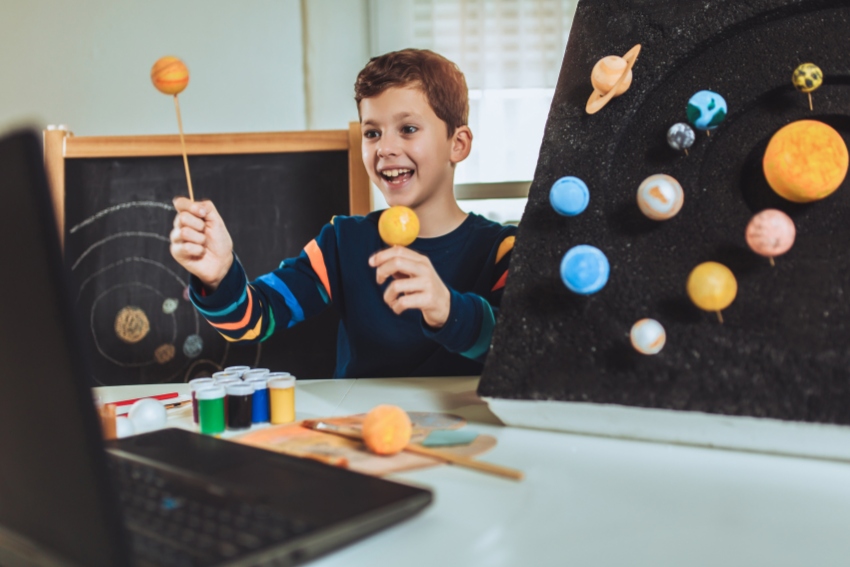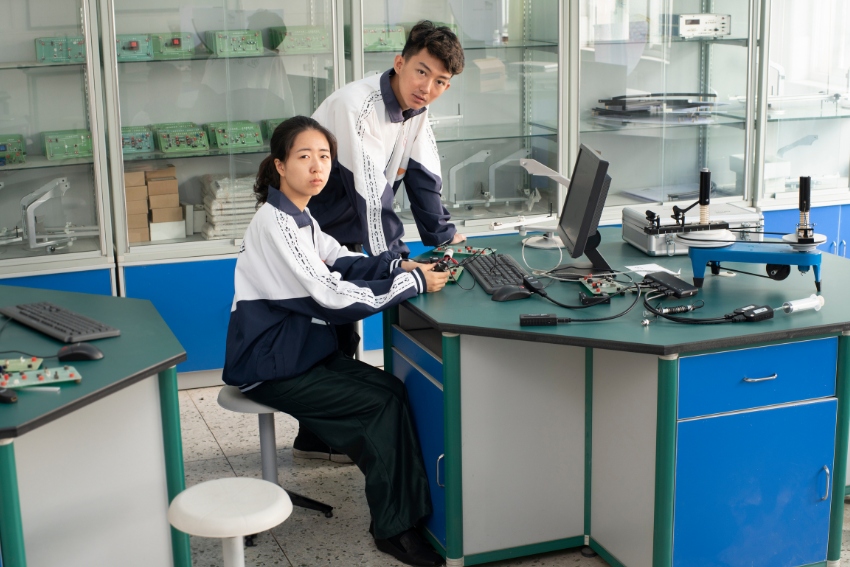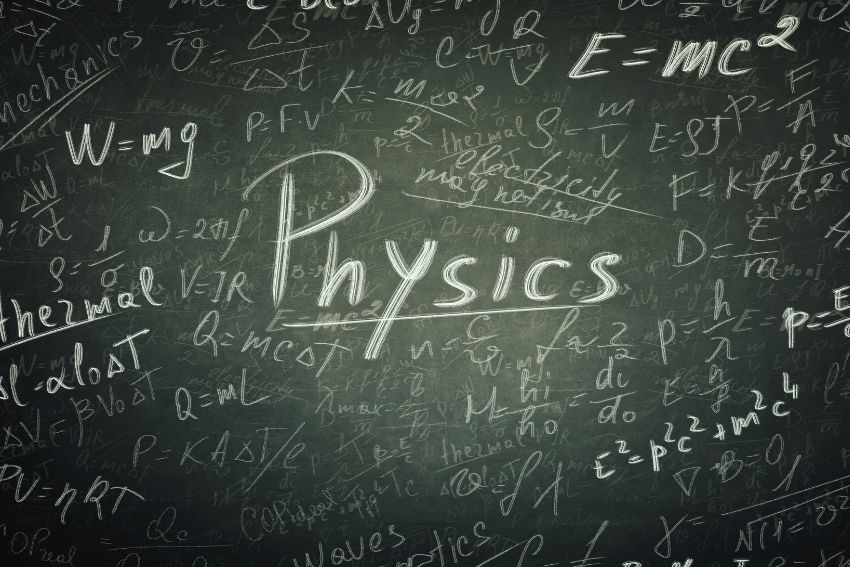Physics Education in the UK – A Guide for Parents
As a parent, you may well recognise the enormous challenge that physics presents for your children. Considered one of the tougher subjects within the realm of UK education, physics is nonetheless an invaluable discipline that opens the door to a myriad of career opportunities, from engineering to astrophysics.
However, the complex concepts and laws that govern the physical world can seem daunting for youngsters. Without proper guidance, they might struggle to grasp these principles, which could lead to a drop in self-confidence and, worse, deter them from exploring the exciting world of physics altogether.
You might have experienced that sinking feeling of helplessness, watching your child grapple with their physics homework, not knowing how to provide the support they need. But rest assured, you’re not alone in this. Parents across the UK face the same dilemma, how can they help their children master physics?
Well, you’ve come to the right place. This comprehensive guide aims to empower you, the parent, with the necessary knowledge and resources to support your child through their physics journey, from their early years of scientific exploration to the advanced depths of A-level physics.
Early Years Science Education: The Foundation of Physics
Physics isn’t taught as an isolated subject in the early years of a child’s education, but rather as an integral component of a more generalised science curriculum. This lays a strong foundation upon which a child’s understanding of physics will be built.
Topics Taught
Understanding the World
In the early years, children are introduced to the fundamental aspects of science, including physical processes. This broad topic encourages them to explore and understand their surroundings, involving discussions about the natural world and simple physical properties of objects.
Children might engage with everyday phenomena like shadows and light, consider why different objects float or sink, or explore the concept of speed by observing moving objects. Activities like these also help introduce biology learning, highlighting the importance of observing plants, animals, and how living things change over time.
How to Help Your Child with Physics in Early Years of Education?

Making Science a Part of Daily Life
At this stage, children learn best through play and exploration. Encourage your child’s curiosity by engaging with them in their environment. You could discuss why the sky is blue, how plants grow, or why bubbles are round, for instance.
Encourage Questions
Questions are an essential part of the learning process. Encourage your child to ask questions about the world around them. If you don’t know the answer, that’s okay! It’s an opportunity for both of you to learn together.
Resources
Books
Books are a fantastic way to introduce children to the world of physics. Titles like “Physics for Kids: How to Explore Forces, Gravity, and Energy with Do-It-Yourself Experiments” and “Baby Loves Quantum Physics!” are excellent choices for young learners.
TV Shows
Children’s TV shows like “The Magic School Bus” and “Bill Nye the Science Guy” can make complex concepts fun and understandable for children.
YouTube Channels
YouTube can also be a treasure trove of educational content. Channels like “SciShow Kids” and “National Geographic Kids” provide engaging and easy-to-understand videos on a variety of scientific topics.
Key Stage 3 Physics
As children advance to secondary school, physics becomes more defined within the curriculum. Here, students begin to delve deeper into the key principles that define our physical world.
Topics Taught
Energy
Energy is one of the first key physics topics taught at this stage. Children learn about the different forms of energy and how energy is conserved and transferred.
Motion and Forces
Understanding how things move and what influences this movement is crucial in physics. Children learn about speed, velocity, and acceleration, as well as the forces that impact motion like gravity and friction.
Waves
This topic covers the basics of light, sound, and other waves. Children explore how waves transfer energy and carry information.
Electricity and Electromagnetism
Students at this level begin to grasp the fundamental principles of electricity, magnetism, and how they are interconnected.
Tips for Parents
Engage with DIY Physics Projects
There are numerous simple and fun DIY physics projects available online. Engaging with your child in these activities can help them understand complex concepts more intuitively.
Regular Discussions About Physics Concepts
Create an environment where children feel comfortable discussing what they’ve learnt in school. Engage in conversations about the physics concepts they are studying.
Resources
Textbooks
The school-provided textbook is a great starting point, but supplementary books like “KS3 Physics Study & Question Book” can provide additional practice and help.
Educational Websites
Websites such as BBC Bitesize, The Physics Classroom, and Khan Academy offer a variety of educational materials tailored to the Key Stage 3 curriculum.
TV Shows and YouTube Channels
Science-focused TV shows and YouTube channels like “Physics Girl” or “SciShow” provide a fun and engaging way to reinforce and expand upon the topics taught at school.
GCSE Physics
During GCSE, students delve further into the world of physics, exploring concepts in greater depth and beginning to apply their knowledge to more complex scenarios.
Topics Taught
Energy
Building on the Key Stage 3 curriculum, GCSE physics students study different types of energy stores and energy transfers, and the concept of work done.
Particle Model of Matter
Here, students learn about the three states of matter, changes of state, and the behaviour of gases. This gives them a deeper understanding of the physical world at a microscopic level.
Atomic Structure
This topic explores the structure of the atom, radioactive decay, and nuclear radiation – foundational knowledge for fields like nuclear physics and quantum mechanics.
Forces
Students delve deeper into the topic of forces, exploring concepts such as vectors and scalars, moments, and pressure in fluids.
Tips for Parents for GCSE Physics
Assist with Homework and Revision
Your child will likely have more homework at this stage. Providing a quiet, comfortable space for studying and being available for questions can be very helpful.
Encourage Regular Revision and Practice
Regular revision and practice are key to mastering the GCSE physics curriculum. Encourage your child to use revision guides and to practice exam questions.
Create a Conducive Environment for Studying
Ensure your child has the necessary resources and a conducive environment to study. This includes having a quiet workspace, access to textbooks, and an organised schedule.
Resources
GCSE Physics Textbooks
Supplementary textbooks, such as those from the CGP GCSE Physics range, can be very helpful. They often explain complex topics in a simpler, more digestible manner.
Revision Guides
GCSE Physics revision guides, like those published by CGP, are a great resource for consolidating knowledge and practicing exam-style questions.
Educational Apps and Online Platforms
Educational apps like BBC Bitesize, Seneca, and Quizlet offer a range of GCSE Physics revision resources. They include interactive quizzes, flashcards, and video lessons that can make revision more engaging.
Video Channels
YouTube channels like “FreeScienceLessons” and “Physics Online” provide a wealth of GCSE Physics content, including topic explanations, exam tips, and walkthroughs of past paper questions.
A-level Physics
A-level physics is a stepping stone to university-level study and a wide range of careers. The curriculum here is extensive and sophisticated, providing students with a deep understanding of the principles and applications of physics.
Topics Taught
Mechanics and Materials
These modules delve into advanced concepts of forces, energy, power, and the properties and behaviours of materials.
Particles and Radiation
A cornerstone of modern physics, this section investigates quantum phenomena and particle physics.
Fields and their Consequences
Students here explore gravitational, electric, and magnetic fields and their effects, as well as capacitors and electromagnetic induction.
Nuclear Physics
This module deepens the understanding of atomic structure, introducing students to nuclear decay, nuclear energy, and the properties of unstable nuclei.
How to Help Your Child with A-level Physics?

Encourage Regular Study
At this stage, your child should develop good study habits. Encourage a consistent study schedule to avoid last-minute cramming.
Support with Exam Stress
A-level exams can be stressful. Be there to provide emotional support and reassurances during these challenging times.
Highlight the Relevance of Physics
Show your child the real-world applications of what they’re learning to make the subject more relatable and interesting.
Resources
Textbooks and Revision Guides
Recommended A-level textbooks, like the ones published by AQA, Edexcel, or OCR exam boards, are comprehensive resources. Also, consider revision guides such as those by CGP for exam-style practice.
Educational Websites
Websites such as Physics and Maths Tutor and Khan Academy offer excellent resources tailored to A-level physics, including past papers and detailed topic notes.
YouTube Channels
Channels like “DrPhysicsA” and “A Level Physics Online” are geared towards A-level physics and provide helpful explanations of complex topics and exam tips.
Conclusion
Throughout your child’s educational journey, there will be moments of triumph and challenge. As a parent, your role is vital in supporting, guiding, and providing the necessary resources for your child to navigate the exciting yet complex world of physics. But remember, you’re not alone in this journey.
Remember that physics isn’t merely a school subject, but a lens through which we understand and appreciate the world around us – from the gravity that keeps us grounded, to the energy that powers our homes, to the light that illuminates our path. Physics, as a discipline, offers a profound understanding of how and why things work. It nurtures critical thinking, problem-solving skills, and intellectual curiosity – attributes that will empower your child far beyond their school years.
But we must also recognise that mastering physics, like any worthwhile pursuit, requires patience, persistence, and a passion for learning. There will be times when the going gets tough, when concepts seem impossibly complex and exam pressures loom large. In these moments, remind your child of the vast universe waiting to be understood, the unanswered questions yearning to be solved, and the exciting potential that a deep understanding of physics can unlock.
And if your child needs that extra push, an additional explanation or a different perspective, remember that help is just a click away. Edumentors, an online tutoring platform, is a valuable resource at your fingertips. The tutors at Edumentors are not just experts in their fields but are also students at top UK universities. They understand the path your child is treading, having navigated it themselves successfully. With their guidance, your child can boost their understanding, increase their confidence, and achieve the results they aspire to.








